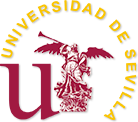
The Master's Degree in Mathematics is aimed at graduates with an interest in the area of Mathematics and its main objectives are:
- Start research in the different areas of knowledge of mathematics so that students who wish may join a doctoral program in mathematics and do a doctoral thesis.
- To train professionals in the field of mathematics applications in fields such as industry, business, administration and technology, improving the abilities of students for their incorporation into the world of work.
From either of these two perspectives, our objective is that the graduates have acquired advanced training, specialized and multidisciplinary, oriented to its application in different areas within Mathematics. This knowledge, together with the possibility of studying subjects of introduction and support for research, puts the student in a good position to start the competences acquired in the research, promoting in this way the introduction of the graduate in research tasks, susceptible to conclude in a Doctoral Thesis
The master provides advanced training in:
- Algebra, Geometry and Topology
- Mathematical analysis
- Differential Equations and Numerical Analysis
- Statistics
- Applied Mathematics
- Discrete Mathematics and Computing
- Optimization and Operational Research
A recommendation of tuition and personalized tutoring will be made to each student according to their interests and their previous training.
- Dates Pre-registration Course 2018-2019 . Information on the website of the University of Seville onuniversity master's degrees
- Curriculum
- Teaching Guides
- Content of the subjects
- Procedure for adapting students from the "Master's Degree in Advanced Mathematics (University of Seville)"
- Information addressed to new students.
- Access requirements and admission criteria.
- Information on support and guidance for students once enrolled.
- Triptych
- Verification Memory . Date of publication in the BOE 12/24/2015 (sec I. p. 121914) . Link in: Register of Universities, Centers and Titles (RUCT).
- Student guide of the University of Seville
COMPETENCES
Basic skills
-
CB.06. Possess and understand knowledge that provides a basis or opportunity to be original in the development and / or application of ideas, often in a research context.
-
CB.07. That students know how to apply the knowledge acquired and their ability to solve problems in new or unfamiliar environments within broader (or multidisciplinary) contexts related to their area of study.
-
CB.08. That students are able to integrate knowledge and face the complexity of making judgments based on information that, being incomplete or limited, includes reflections on social and ethical responsibilities linked to the application of their knowledge and judgments.
-
CB.09. That the students know how to communicate their conclusions -and the knowledge and ultimate reasons that sustain them- to specialized and non-specialized audiences in a clear and unambiguous way.
-
CB.10. That students have the learning skills that allow them to continue studying in a way that will be largely self-directed or autonomous.
General Competences
-
CG.01. Acquire the mathematical knowledge that, starting from the base of the overcoming of a degree and, relying on advanced textbooks and research works, are developed in the proposed Master's degree in Mathematics that is presented.
-
CG.02. Know how to gather and interpret mathematical data that can be applied to other areas of scientific knowledge. CG.03. Be able to use mathematical tools for the processing of mathematical knowledge.
-
CG.04. Have the capacity to make contributions in the scientific advance of Mathematics.
-
CG.05. Be able to promote new scientific-technological developments in their work environment.
Transversal Competences
-
CT.01. Foster the entrepreneurial and innovative spirit.
-
CT.02. Promote and guarantee respect for Human Rights and the principles of universal accessibility, equality, non-discrimination and democratic values and culture.
-
CT.03. Have the ability to access information in other relevant languages in the scientific field.
Specific Competences (only those associated with compulsory subjects that all students must acquire will be related)
-
CE.01. Understand and use mathematical language. Acquire the ability to state propositions in different fields of mathematics, to build demonstrations and to transmit the acquired mathematical knowledge.
-
CE.02. Understand the rigorous demonstrations of some classical theorems in different areas of mathematics.
-
CE.03. To know how to abstract the structural properties (of mathematical objects, of the observed reality, and of other areas) distinguishing them from those that are purely occasional, and be able to prove them with demonstrations or refute them with counterexamples.
-
CE.04. Solve mathematical problems, planning their resolution based on the available tools and time and resource constraints.
-
CE.05. Propose, analyze, validate and interpret models of real situations, using the most appropriate mathematical tools for the purposes pursued.
-
CE.06. Use computer applications of Statistical Analysis, Numeric and Symbolic Calculation, Graphic Visualization, Optimization or others. Know how to guide your application according to situations and understand its limitations.
-
CE.07. Know how to develop novel computational methods, in the fields of Statistics, Numerical Analysis, Computational Algebra, Cryptography, Geometry, Optimization, and know how to use them in the different applications in which they are relevant.
-
CE.08. Identify concrete problems in the professional field, as well as know how to apply the mathematical tools to solve said problems and make decisions about them.










